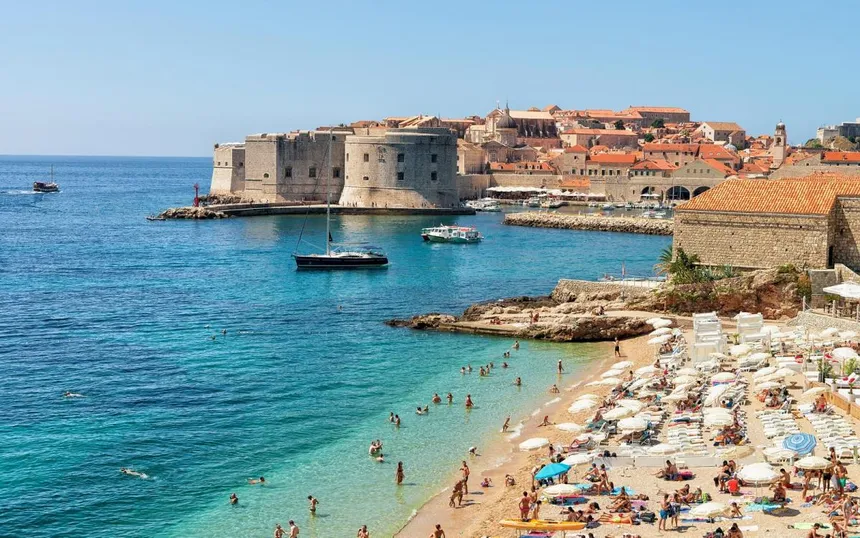The Mediterranean, once a sun-kissed haven for holiday-makers, is facing an unprecedented crisis. As heatwaves repeat themselves and frets about the climate crisis escalate, the once-idyllic destination is struggling to maintain its allure. According to a report by the European Travel Commission, Mediterranean destinations have witnessed a 10% drop in visitors since last year, while other regions like the Czech Republic, Bulgaria, Ireland, and Denmark are experiencing a surge in popularity.
Weary tourists have been fleeing the beaches in Spain, Italy, and Greece, seeking refuge from the scorching sun and choking temperatures. The latest heatwave has seen record-breaking temperatures in towns like Figueres, near the French border, reaching a sweltering 45C, while Barcelona suffered under crushing humidity, with temperatures reaching 36C.
Despite expecting a record-breaking 85 million tourists this year, Spain’s beaches are struggling to draw in visitors. The Costa del Sol, once a haven for sun-seekers, is facing a possible decline as consecutive summers of temperatures over 40C prove too much for even the most devoted sun-worshippers. Zoritsa Urosevic, executive director of the World Tourism Organisation, warns that “heatwaves are having an impact on the choice of holiday destinations. The extreme temperatures are a disincentive for some types of tourists to travel to the Mediterranean.”
Faced with rising costs, many travelers are booking their holidays well in advance, hoping to secure cheaper flights and accommodation before the weather is forecast. Unfortunately, heatwaves are often not covered by holiday insurance policies, leaving tourists vulnerable to the whims of the weather.

Meanwhile, Spanish hoteliers are reporting a significant increase in visitors to the country’s cooler northern regions, such as Asturias, Cantabria, and the Pyrenees. These areas, relatively less crowded than the Mediterranean region, offer a more appealing alternative for tourists seeking a respite from the heat.
The hot weather has also brought prolonged droughts, particularly on the Costa Brava in northeast Spain, where water restrictions may soon affect hotel swimming pools and golf courses, making tourism in the area less attractive. Already, the average price of an overnight stay has risen from €135 to €158 compared to 2022, according to booking.com, with hotel prices in Madrid and Barcelona increasing by 32% and 25.7%, respectively.
Spain’s economy is heavily reliant on tourism, accounting for €194 billion or 14.6% of GDP this year, according to the World Travel and Tourism Council. As the heat continues to intensify and concerns about the climate crisis grow, the Mediterranean’s sunny façade is slowly fading, replaced by a harsh reality that may soon dictate a radical shift in tourists’ preferences.

